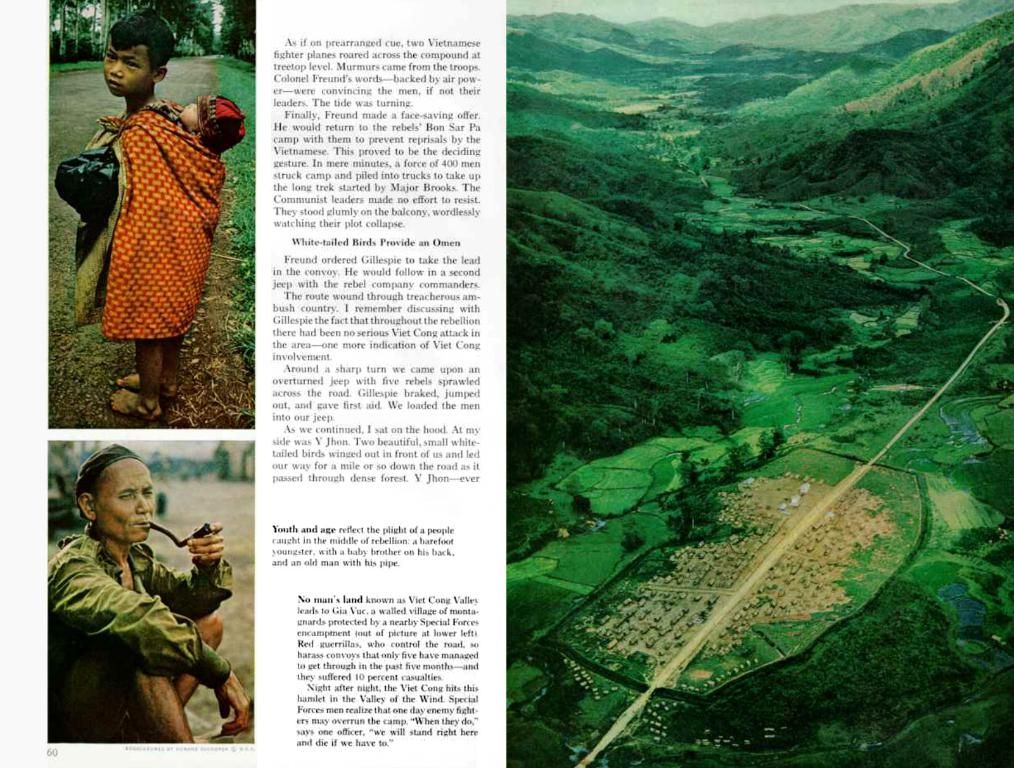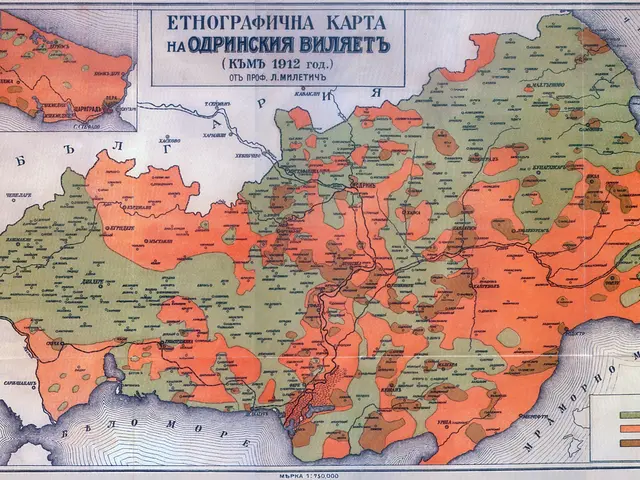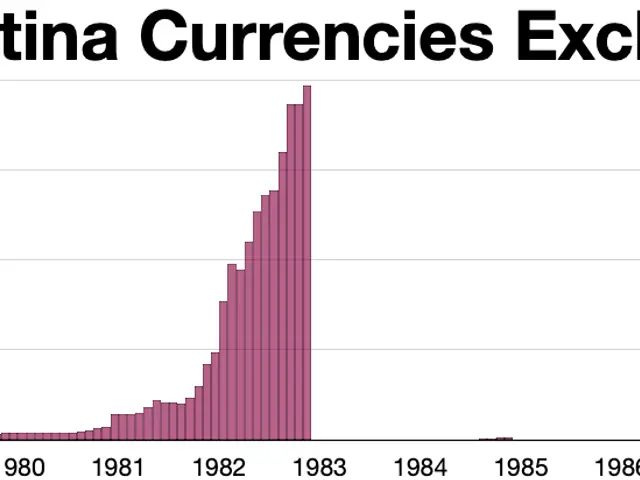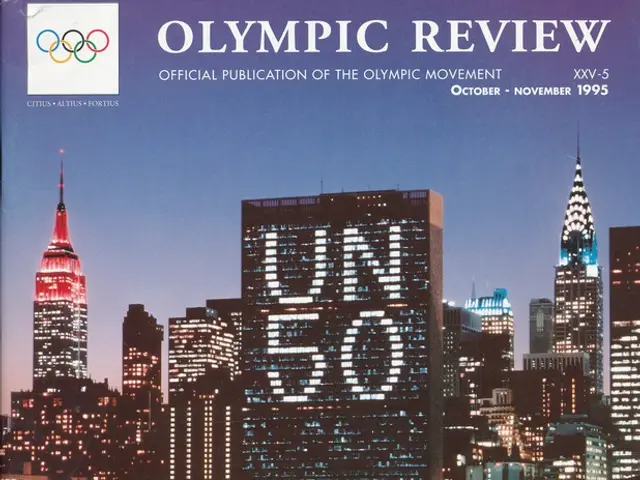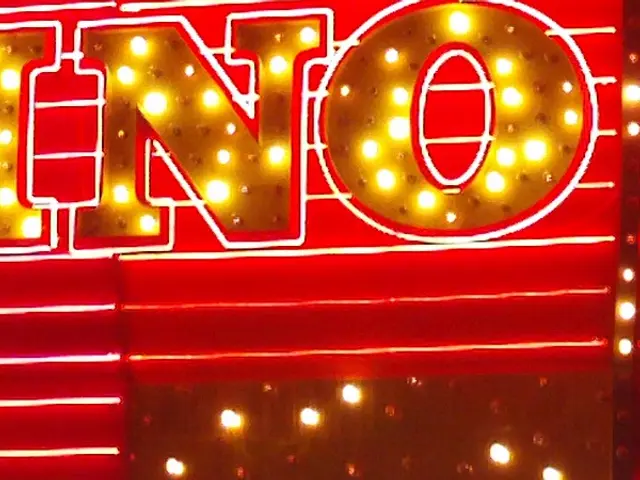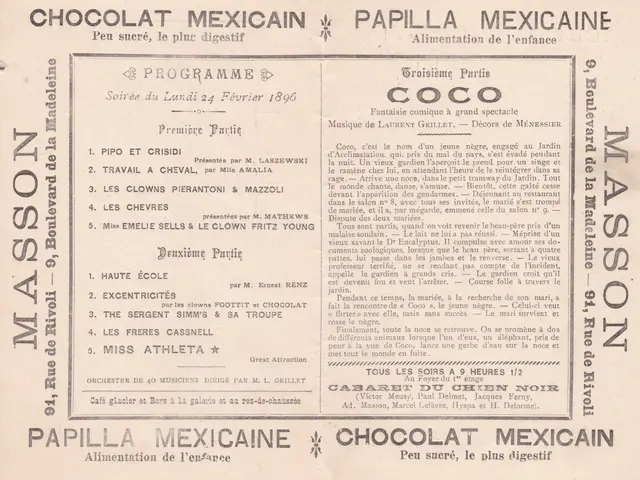Conflict in America's Dystopia - Alex Garland guides us through a desolate future U.S. landscape in his directorial endeavor.
New and Gripping: Civil War Unleashed
Peering into a chilling future, filmmaker Alex Garland had penned the thrilling dystopian drama Civil War in 2020, a year marked by the global pandemic and shifted perspectives of possible futures. As those unsettling fears have persisted and even intensified, Garland admits his anger and anxiety over the subject only deepened.
Following a team of military-embedded journalists on a race against time to reach D.C. before rebel factions invade the White House, Garland's film chillingly portrays the harsh, human realities of a war-torn nation. There, in a world where society's fabric has been torn apart, individuals scramble to survive amid a ruthless battle for life.
"Speaking plainly, in war, civilians will die. Generals call it 'collateral damage' matter-of-factly, and it's often true on a more personal level," Garland remarks.
The provocative power of Civil War lies in Garland's audacious repurposing of war tools, images, and terminology onto American soil—concepts like airstrikes, civilian targets, and collateral damage. "That's war today, no matter what the context: civil or international," Garland explains.
Harnessing the eerie emptiness of London's streets from his 2002 screenplay for the genre-defying zombie film 28 Days Later, Garland reshapes familiar American landscapes—from New York to Washington, DC—into an otherworldly, disquieting landscape.
"If you're heading towards a state like this, remember what it looks like," Garland warns. "The famous phrase 'those who forget history are doomed to repeat it,' holds true; no one is safe, no nation is immune."
As the war spirals across the country, Civil War contains a staggering sense of authenticity—a breathtaking, unflinching depiction of war, one that transcends mere dystopia. Here, you'll find a harrowing portrayal of combat that is brutally real.
"I don't believe these dangers are remote; they're real," Garland asserts. "The problems may not escalate into full-blown civil war; still, existential crises can and do arise. In some regions, they already exist."
Civil War takes place in a near-future America torn apart by numerous factions engaged in a brutal civil war. The Western Forces, a rebellious alliance of states defying the federal government, are days away from capturing the capitol. News journalist Lee (Kirsten Dunst) embarks on a perilous journey to the White House to conduct what could be her final interview with the president (Nick Offerman). Accompanied by a small caravan of journalists, including the ambitious, inexperienced Jesse (Cailee Spaeny), the film charts a winding road that plays out as much as a road movie as a war film. Somehow, it weaves a cautionary tale that feels frighteningly pertinent.
"I see this movie as a fable, a cautionary tale about what happens when people disconnect from each other," Dunst notes. "When everyone shuts off communication, when those who speak truth are silenced—that's what this film represents."
With a dispassionate outsider's outlook, Garland crafts an unexpectedly new type of American war movie—a propulsive action thriller shot through with sobering commentary on the nature of armed conflict.
"Making a genuine, anti-war war movie is incredibly challenging. Most dwindle into romanticized, sensational violence," Garland says. "Exceptions are scant, films like Stanley Kubrick's Paths of Glory or the gut-wrenching Soviet epic Come and See. I wanted Civil War to be a true anti-war film where the adrenaline-pumping action scares you, but the horror steers the action."
For an unglamorous, unsensationalized depiction of violence, Garland eschewed traditional cinematic techniques, favoring the raw, gritty style of documentary imagery. "When people are shot, they don't explode into a shower of blood. They fall. Afterwards, blood seeped across the ground, given enough time," he describes.
"I avoided using tracks and dollies as much as possible. Instead, small handheld cameras provided an intimate, visceral feel during combat sequences," Ray Mendoza, the military advisor who collaborated closely with Garland on the film, shares.
Crafting the sweeping scale of horror was an immersive challenge, blurring the line between fiction and reality. "I wanted to convey the documentary feel of combat in every aspect—from production design to sound effects," Garland says.
Ultimately, Garland hopes audiences approach the film with an open mind, leaving with a broader perspective on our current political climate. "Civil War is a stark, chilling depiction of what warfare can become; I merely want viewers to contemplate our own predicament within this context," he adds.
In making a relentlessly original American war movie, Garland has crafted one of the boldest and most audacious works of his career. "I grew up in the wake of hippie-punk rebellion, and I've never managed to shake off the urge to push the envelope," he muses. "I've always wanted to do something subversive, and I suppose I'll never stop."
Civil War embodies Garland's rebellious spirit, challenging us to consider the war we may blindly stumble into at any moment.
- Throughout the filmmaking process, Alex Garland delves into various aspects of contemporary society, such as politics, general news, and entertainment, to shed light on the potential consequences of conflict through a dystopian lens.
- In the realm of science and space-and-astronomy, Garland employs an artistic license in Civil War, reshaping familiar American landscapes into an eerie, otherworldly backdrop that mirrors the disquieting state of society.
- By exploring the harsh realities of war in movies and TV like Civil War, Garland sheds light on the importance of understanding the impacts of conflict beyond the realm of screenwriting, serving as a reminder to engage independently with political and social issues.
